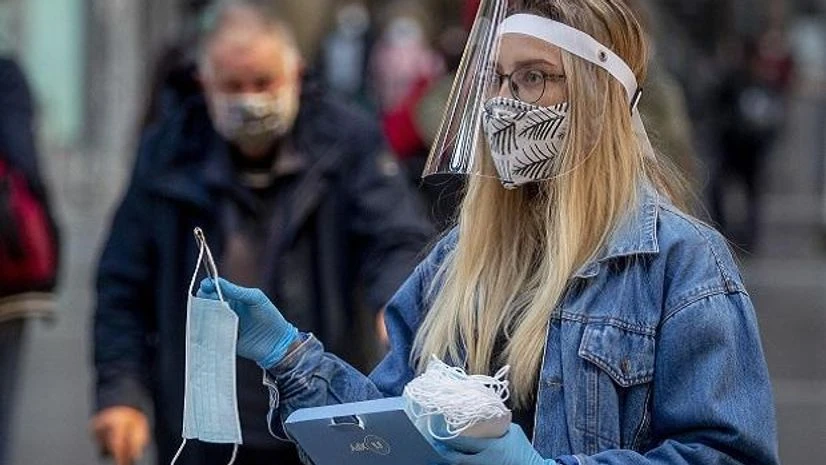Exactly one year ago today, the first Covid-19 case in Germany was officially confirmed. Since then, more than 2.16 million Covid-19 cases have been registered in the country, according to the Robert Koch Institute (RKI) on Wednesday.
"A year ago today, not everyone realized that we would be living in a pandemic," Chancellor Angela Merkel said during her speech on Tuesday during the virtual annual meeting of the World Economic Forum (WEF), adding that "our lives over the next few years would be shaped by the deep traces of the pandemic in our economy and society."
Back in late January last year, Bavarian health authorities confirmed the first Covid-19 case in Germany, an employee of the automotive supplier Webasto near Munich who was infected during a company event, the Xinhua news agency reported.
"When Webasto became the first company in Germany to be confronted with the novel virus exactly twelve months ago, I could never have imagined the extent to which the virus would spread globally," said Holger Engelmann, chairman of the management board at Webasto SE, in a statement.
Although the Covid-19 outbreak at Webasto was quickly brought under control with the help of contact tracing, the virus continued its spread for example during a carnival event, when a large number of people got infected.
Also Read
An unprecedented lockdown followed in spring, with contact restrictions and a shutdown of the economy. During summer, Covid-19 infection rates in Germany had calmed down, but the situation worsened during the fall.
The past few months have brought new record numbers, particularly in new cases and deaths. The peak of 1,244 deaths related to Covid-19 within one day was reached two weeks ago, according to the RKI, the federal government agency for disease control and prevention.
Germany's official death toll was 53,972 as of Wednesday, according to RKI.
Germany entered a second lockdown at the beginning of November. The lockdown, failing to reverse the trend in infections, was tightened and only recently extended until mid-February. Bars and restaurants as well as non-essential shops in Germany are closed and strict contact restrictions apply.
Minister of Health Jens Spahn said during a press conference last week that Covid-19 case numbers were "encouraging in recent days" as the numbers were finally heading in the right direction. However, infections and death rates were still "too high."
Spahn said the ongoing vaccination campaign in Germany gave reason for hope. "We are at the height of the pandemic, but at the same time we have started the journey out of the pandemic."
Nearly 1.7 million people in Germany have received the first dose of Covid-19 vaccines since the campaign was launched at the end of December. More than 318,000 have already received the required second dose, according to RKI data published on Wednesday.
As the world is struggling to contain the pandemic, vaccination is underway in some countries with the already-authorized coronavirus vaccines.
Meanwhile, 236 candidate vaccines are still being developed worldwide -- 63 of them in clinical trials -- in countries including Germany, China, Russia, Britain and the United States, according to information released by the World Health Organization on January 26.
--IANS
int/rs
(Only the headline and picture of this report may have been reworked by the Business Standard staff; the rest of the content is auto-generated from a syndicated feed.)

)
